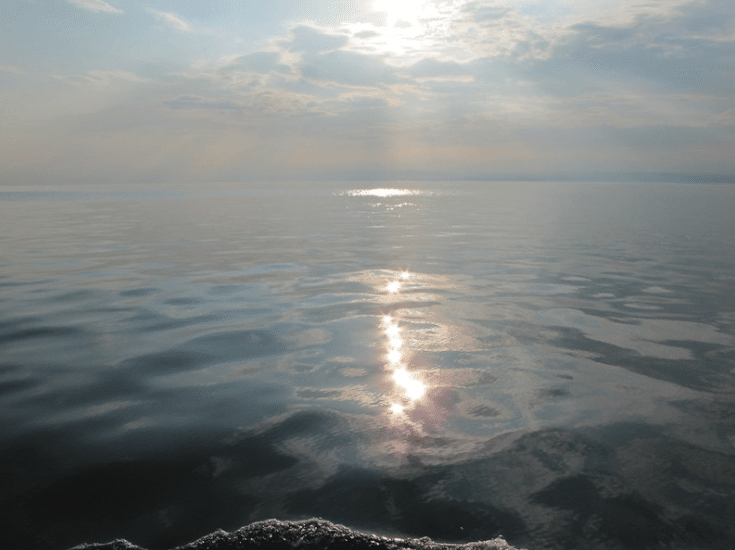The clean energy transition is accelerating worldwide, especially in Hawaii. Fueling this transition will be large amounts of rare earth elements (REE) necessary to develop advanced energy technology, especially for battery storage.
Presently, REE are largely coming from controversial mines in Africa and Chinese-dominated supply chains that threaten the sustainability of the clean energy transition. This convergence of the energy-economy demand to fight climate and geo-strategic interests presents a major opportunity for Hawaii to benefit, if we decide to take it.
The clean energy transition will not be achievable without a major increase in REE availability. Deep sea mining can resolve the current lack of resources necessary to transition the global economy away from fossil fuels.
This will likely be an industry that generates trillions of dollars in wealth for all socio-economic groups. Thousands of good paying jobs and long sought economic diversification away from tourism are on the table for us. Our position about 800 miles north of the Clarion-Clipperton Zone positions Hawaii to be one of the key global players for REE production and trade.
Capitalizing on the benefits of deep sea mining will require proactive, forward-thinking leadership that has largely been absent from Hawaii over the preceding generation. The most immediate challenge comes from House Bill 376, filed in the 2023 state legislative session.

This bill would prohibit deep sea mining in Hawaii’s immediate waters and has the potential to send a very negative signal abroad that Hawaii is closed to future opportunity. If the state Legislature erroneously passes the bill this session, the governor must veto it.
On the federal level, Rep. Ed Case of Hawaii introduced legislation in Congress last year to impose a moratorium on deep sea mining. This type of moratorium could become a de facto ban given the strength of far left-wing environmental groups in the Democratic Party coalition.
Instead, Hawaii and U.S. lawmakers need to be engaged and planning for the smooth facilitation of deep-sea mining. Rather than protest companies trying to develop our undersea resources our state leaders should be figuring out how to maximize the benefits.
UH A Global Leader
The University of Hawaii Manoa is already a global leader in marine and environmental science research. Let’s further develop that baseline to build a specialized, talented workforce at all levels that can support deep-sea mining.
Instead of introducing moratoriums that further isolate the U.S. from international rule-making, our senators should push for ratification of the UN Convention on the Law of the Sea. Lack of U.S. ratification of this treaty leaves us without a voice in setting regulations and potentially leaves us out of benefiting from deep sea mining.
Other countries and companies are not going to wait on the U.S. or Hawaii to get their act together. They’re already moving. Canadian-based The Metals Company is only an early entrant to the rapidly emerging deep sea mining industry.
The U.S. and China are engaged in an all-encompassing great power competition where the latter’s dominance of existing REE supply chains is already posing serious strategic economic challenges for the Free World. China’s greater proactive engagement and willing participation in international rulemaking bodies has given them a dominant position throughout the Indo-Pacific.
It’s plainly naïve to believe opposition to deep-sea mining will stop it from happening. China’s push for greater influence throughout Micronesia, including leveraging strategic partnerships to enhance their REE dominance, is a direct challenge to the U.S. led free and open Indo-Pacific architecture.
There is no ignoring the significant environmental challenges we are facing with impending deep-sea mining. But moratoriums or prohibitions are perhaps the most counterproductive way to respond.
It’s naïve to think unilateral U.S. or state-based restrictions will deter the major world powers from developing their undersea resources. Developing Micronesian states are already eagerly searching for partners to exploit the resources they control.
Fortunately, there are resources available we can leverage. The U.S. Defense Department is already committing hundreds of millions to strengthen REE supply chains for vital national security reasons.
Additionally, the National Oceanic and Atmospheric Administration is one of the leading civilian agencies investigating and researching the potential impacts of deep-sea mining. Our members of Congress in Washington should be bolstering these disparate initiatives, especially with a view towards strengthening Hawaii as a global REE supply chain node.
Like it or not, deep-sea mining will soon be a reality and we in Hawaii have a choice on what to do about it. No proposed ban is likely to be effective. China partnering with developing states will move ahead and exploit our undersea resources; and China’s already crafting international rules to loosen environmental constraints in deep-sea mining.
Fortunately, there are resources available we can leverage.
Passing on deep-sea mining means passing on diversifying our economy, enhancing our resiliency, powering the clean energy transition, and providing thousands of good paying that otherwise will not exist.
If we want to prioritize the status quo and not challenge ourselves then we’re implicitly choosing to maintain the dominant position of the tourism industry with its ecosystem of mostly low wage and low skill jobs. We will let China and others reap the benefits.



